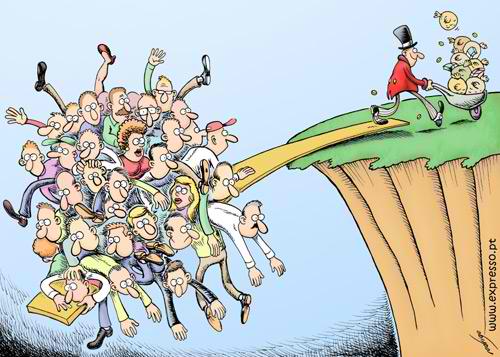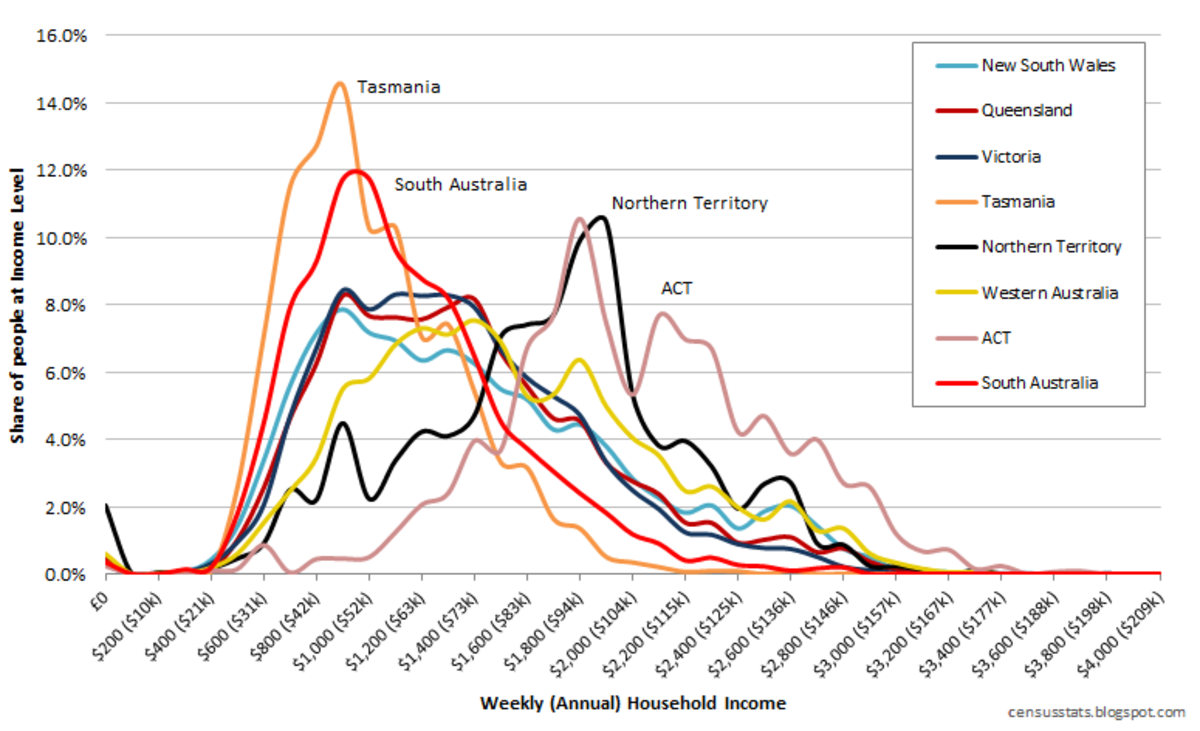Income Inequality In America: It's Too BIG and Unfair To Ignore

I don’t envy anyone their wealth - period. Even if someone inherited their wealth there are usually sacrifices and responsibilities that come along with it that most of us couldn’t or wouldn’t want to handle. We've all heard the saying, “more money, more problems” and I believe it!
We can all agree that a certain amount of income inequality is fair and understandable. If my boss makes 10 or 100 hundred times more than I do, I completely understand after all he has way more credentials and responsibilities than I do. But what if your employer’s pay is between 250 and 500 times more that of the average American worker? How would you feel about that? Is that too large an income inequality?
There was a study done in 2005 which revealed that the average CEO was paid $10 - $15 million annually. This includes their salary, bonus, stock option gains, stock grants, and various executive benefits. Of course some CEOs make more than this amount. Some data sources indicate that the average American worker was paid about $40,000 in 2005.
The majority of social scientists believe that this type of income inequality currently poses a serious problem for American society. According to Alan Greenspan, it is a “very disturbing trend.” A study by the Southern Economic Journal found that 71% of American economists believe the distribution of income in the U.S. should be more equal.
During the three decades after World War II (mid 1940s to mid 1970s), for example, incomes in the United States rose rapidly and at about the same rate — almost 3 percent a year — for people at all income levels. Because of this, America had an economically vibrant middle class. Roads and bridges were well maintained, impressive new infrastructure were being built and there was a tremendous amount of innovation. Americans were optimistic!
By contrast, during the last three decades (mid 1980s to the present) the economy has grown much more slowly, and our infrastructure has fallen into grave disrepair. But what is most disconcerting is that all significant income growth has been concentrated at the top of the income scale. The share of total income going to the top 1% of the wealthiest Americans went from 8.9% in 1976 to 23.5 percent by 2007. At the same time the average American’s hourly wage declined by more than 7 percent!
A recent working paper written by Adam Seth Levine (a postdoctoral researcher in political science at Vanderbilt University), Oege Dijk (an economics Ph.D. student at the European University Institute) and Robert H. Frank (an economics professor at the Johnson Graduate School of Management at Cornell University) found that the counties where income inequality grew fastest also showed the biggest increases in symptoms of financial distress. For example, even after controlling other factors, these counties had the largest increases in bankruptcy filings.
Divorce rates are another reliable indicator of financial distress, as marriage counselors report that a high proportion of couples they see are experiencing significant financial problems. The counties with the biggest increases in income inequality also reported the largest increases in divorce rates.
Income Inequality also reduces voters’ willingness to support even basic public services. Rich and poor alike must endure crumbling roads, weak bridges, an unreliable rail system, and cargo containers that enter our ports without scrutiny because the masses just cannot tolerate any public expenditure because their personal finances are in shambles. That greater income inequality cause real economical, emotional and social harm is beyond a doubt.
There is no persuasive evidence that greater inequality bolsters economic growth or enhances anyone’s well-being. Yes, the rich can now buy private planes, bigger mansions and fancier cars and go on space vacations but this appears not to have made them any happier and it hasn’t helped the middle class in any way; or created any real jobs.
Most Americans do not begrudge the wealthy their wealth. We just want to have the opportunity to receive fair wages and the chance to see our incomes increase by 3 percent a year once again.
We simply want to be the best we can be so that America can live up to her fullest potential.
So maybe we should just agree that extreme income inequality is a bad thing — and we should try to do something about it; for the greater good and for America’s sake.
Peace, Love and Understanding!








